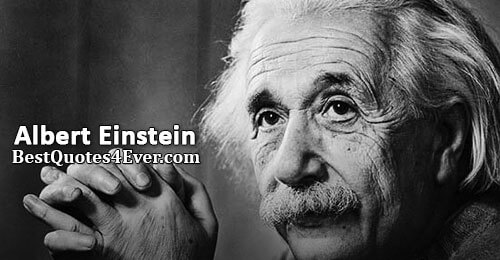 | BiographyType: Physicist Born: 14 March 1879 Died: 18 April 1955 Albert Einstein, (born March 14, 1879, Ulm, Württemberg, Germany—died April 18, 1955, Princeton, New Jersey, U.S.), German-born physicist who developed the special and general theories of relativity and won the Nobel Prize for Physics in 1921 for his explanation of the photoelectric effect. Einstein is generally considered the most influential physicist of the 20th century. Near the beginning of his career, Einstein thought that Newtonian mechanics was no longer enough to reconcile the laws of classical mechanics with the laws of the electromagnetic field. |
Everything must be made as simple as possible. But not simpler.
God does not play dice with the universe.
A foolish faith in authority is the worst enemy of truth.
The significant problems we have cannot be solved at the same level of thinking with which we created them.
Oh juventud nunca dejes de pensar...
Try and penetrate with our limited means the secrets of nature and you will find that, behind all the descernible laws and connections, there remains something subtle, intangible and inexplicable. Veneration for this force beyond anything that we can comprehend is my religion. To that extent I am, in fact, religious.
Politics is for the moment and equation is for eternity.
Gandhi, the greatest political genius of our time, has pointed the way. He was shown of what sacrifices people are capable once they have found the right way. His work for the liberation of India is a living testimony to the fact that a will governed by firm conviction is stronger than a seemingly invincible material power.
The laws of gravity cannot be held responcible for people falling in love.
Matter tells space how to curve, space tells matter how to move.
We can't solve a problem by using the same kind of thinking we used to create them.
We cannot despair of humanity, since we ourselves are human beings.